Filed in
Conferences
 Subscribe
Subscribe to Decision Science News by Email (one email per week, easy unsubscribe)
SOCIETY FOR CONSUMER PSYCHOLOGY ANNUAL WINTER CONFERENCE
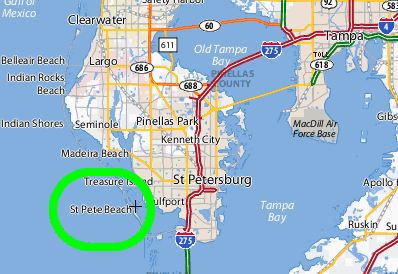
Decision Science News will attend the SCP 2010 conference. It’s taking place, as it has in the past, in balmy St. Pete Beach, Florida (think Tampa / St. Petersburg) and is sure to offer a bevy of consumer behavior theories and crossover interactions.
What: SCP 2010 Conference
Where: Tradewinds Resort
Map: 5500 Gulf Boulevard, St. Pete Beach, FL 33706
When: February 25-27, 2010
Register: http://www.chilleesys.com/scp/conference/special_events.aspx
Early registration fee (members): $375 till Jan 22, 2010
Early registration fee (student, members): $125 till Jan 22, 2010
From the organizers:
The Society for Consumer Psychology (SCP) will be holding its Annual 2010 Winter Conference on February 25-27 at the Tradewinds Island Resort, St. Pete Beach, FL. The SCP conference provides opportunities for a high level of interaction among participants interested in the integration of psychology and consumer research. The 2010 conference will be held in beautiful St. Pete Beach, a short drive from the Tampa/St. Petersburg/Clearwater metropolitan area.
Find more at the SCP 2010 Winter Conference Website
THE TECHNICAL DETAILS, TUTORIALS, WALK-THROUGHS
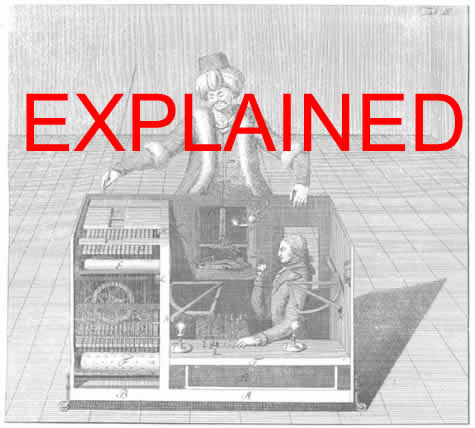
A few posts back, we showed how classic decision making experiments are being replicated on Amazon’s insta-subject-pool otherwise know as Mechanical Turk (aka MT).
After that, Steven Pinker, at the SJDM keynote, presented Mechanical-Turk-collected data on perceptions of whether the past or present is perceived as more violent.
This week, Decision News News, currently stationed at Yahoo! Research in New York, points to a useful guide to running experiments on MT, written by fellow Yahoo researcher and all-around wizard of computational psychology, Winter Mason.
If you want to do some very basic experiments using MT, you can probably get started using their templates. However, if you want to have participants engage in more complex interactive tasks, you probably want to use their command line tools or API. Here’s a guide to help you decide. If you go the command-line route, Winter’s instructions will save you some of the pain of figuring it out for yourself.
Here at Yahoo, we’ve been able to do some amazing MT experiments, including group decision making tasks, in which the groups are assembled on the fly. Think of it, no more inviting people to the lab and having to cancel when too few show up.
Photo credit: http://en.wikipedia.org/wiki/File:Tuerkischer_schachspieler_windisch4.jpg
PROFILE OF A PIONEER IN SOCIAL PSYCHOLOGY
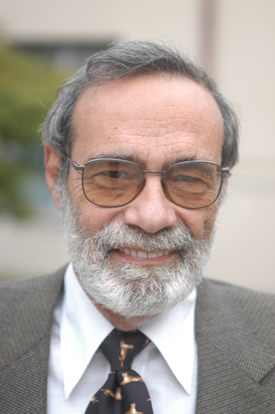
Decision Science News has learned that the creator of expectancy-value theory, Martin Fishbein, has died.
From Icek Aizen:
We report with great sadness that our friend and colleague, Martin Fishbein, died Friday, November 27 of a heart attack while on a visit to London. Marty was a professor at the University of Illinois — Champaign/Urbana from 1961 to 1997 and since then has been the Harry C. Coles, Jr. Distinguished Professor of Communication at the Annenberg School for Communication and founding director of the Health Communication division of the Annenberg Public Policy Center.
Marty’s research interests included attitude theory and measurement, communication and persuasion, behavioral prediction and change, and behaviors in field and laboratory settings, including studies of the effectiveness of health-related behavior change interventions. He was president of both the Society for Consumer Psychology and the Interamerican Psychological Society and won many awards, including a Guggenheim Fellowship.
Marty is perhaps best known for his landmark theories in the field of social psychology. Working with his former student Icek Ajzen, he expanded his expectancy-value model into the theory of reasoned action, a theory that has had a marked impact not only on attitude research but also on applied work in such fields as health psychology, environmental behavior, marketing, organizational communication, and consumer behavior. His work is reviewed in a just published monograph: Fishbein, M., & Ajzen, I. (2010). Predicting and changing behavior: The reasoned action approach. New York: Psychology Press (Taylor & Francis).
Information about a celebration of his life will follow when plans for the event are finalized.
Icek Aizen
University of Massachusetts
For those wishing to learn more on Fishbein’s work see
PREDICTING ELECTIONS FROM THE MOST IMPORTANT ISSUE FACING THE COUNTRY
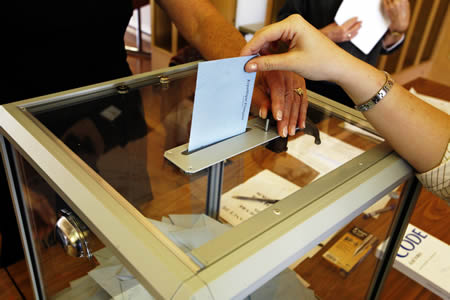
Andreas Graefe and Scott Armstrong have put forth a model that predicts the outcome of U.S. Presidential Elections based on the most important issue as seen by voters. It’s a good illustration of how one cue, if it’s a good one, can be effective for forecasting.
It’s an early draft and they would appreciate comments.
The paper is available here: http://pollyvote.forecastingprinciples.com/images/papers/PollyMIP.pdf
Photo credit: http://en.wikipedia.org/wiki/File:Election_MG_3455.jpg
FIRST ANNUAL BOULDER SUMMER CONFERENCE ON CONSUMERS’ FINANCIAL DECISION MAKING

What: First Annual Boulder Summer Conference on Consumers’ Financial Decision Making
When: June 27-29, 2010
Where: Hotel Boulderado, Boulder, Colorado
Deadline: Abstract SubmissionDecember 15, 2009
Decision Science News was at the Leeds School of Business at the University of Colorado in Boulder last week, had a great time, and thinks they have a great group there with strong expertise and interest in Judgment and Decision Making research, particularly as it concerns consumers’ financial decision making. Fittingly, they are about the launch the first in a set of annual conferences on the topic. Decision Science News intends to be in attendance. Here’s the information, provided by John Lynch:
Submitting Abstracts
To submit an extended abstract (1 to 2 pages), please visit the conference website: http://Leeds.Colorado.Edu/BoulderSummerConference and click on the Paper Abstract Submission link.
Submission Deadline for Extended Abstract: December 15, 2009
Conference Overview
The conference will provide a forum for exchange of ideas among researchers in different fields working on problems of consumer financial decision-making. Consumer welfare is strongly affected by household financial decisions large and small: choosing mortgages; saving to fund college education or retirement; using credit cards to fund current consumption; choosing how to “decumulate” savings in retirement; deciding how to pay for health care and insurance; and investing in the stock market. Basic research in judgment and decision making, psychology, consumer research, behavioral finance, and behavioral economics can inform our understanding of how consumers actually make such decisions and how consumers can be helped to make better decisions by innovations in public policy, business, and consumer education.
Conference Format
Papers will be presented in two forums: a poster session the first night of the conference and in a series of 75-minute sessions. Ten such sessions over the two days of the conference will each have two paper presenters, a discussant, and time for audience questions and comments.
The conference co-chairs will select papers for presentation at the conference based on extended abstracts. Selected papers must not be published prior to the conference, but those researchers presenting their work at the conference must have a paper that is complete and available for review by discussants one month prior to the conference. Selections will be based on quality, relevance to consumers’ financial decision-making, and contribution to breadth of topics and disciplinary approaches across the conference as a whole.
Registering for the Conference and Booking a Room
There are links on the conference website for booking at the Boulderado and for registering for the conference.
The conference will be held in the historic Hotel Bouderado. We have negotiated very attractive room rates for conference attendees (and families). Please note that the Conference has not guaranteed any rooms, rather they are on a “first come” basis. We encourage you to book your rooms as soon as you can. Boulder is a popular summer destination and rooms go quickly at the Hotel Boulderado!
Photo credit: http://en.wikipedia.org/wiki/File:Flatirons_Winter_Sunrise_edit_2.jpg
A WHOLE NEW WORLD OF EXPERIMENTS NOW POSSIBLE
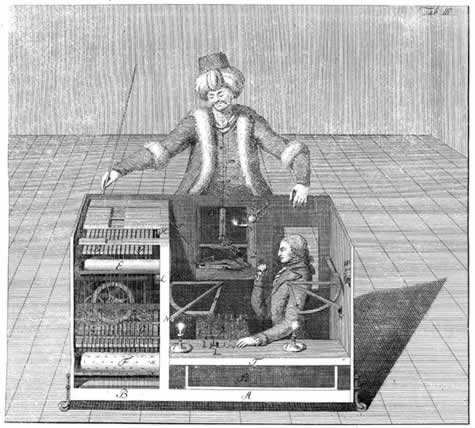
Gabriele Paolacci sends along the following announcement. Decision Science News is also a fan of Amazon’s Mechanical Turk (or mturk as we insiders call it), and it and its colleagues at Yahoo! Research are actively using with the evolving methodology.
You are probably aware of the growing interest for Amazon’s Mechanical Turk (AMT) as a tool for conducting experimental research in the web. By allowing to allocate tasks to paid subjects, Mechanical turk is an online labor market where subjects can be recruited and paid on a large scale and in short time. Being an online labor market, it also is a potentially interesting “ecologically valid” context for experiments: subjects are looking for “real” jobs when they decide to participate to an experiment.
While the potential for using AMT in experiments is huge, there are obvious issues of validating its reliability. In this spirit, hoping to provide a service to the experimental community, Massimo Warglien and me started a blog. In this blog we are sharing our first attempts to replicate classical lab experiments in AMT and compare the outcomes with the original ones. As replications cumulate, we hope to be able to provide in the future more sophisticated meta-analyses of the results.
Please give a look at the blog if you are curious: http://experimentalturk.wordpress.com/
We invite you to share this information with anyone that might be interested. In particular, we invite to send us other replication exercises that might be performed to enrich the data set of replications and broaden the empirical basis of the validation effort. Other kind of experimental or survey experiences or useful tools to improve experimentation in the web via crowd-sourcing resources such as AMT are welcome as well; useful links are also gratefully received.
Among other things, AMT might provide a great tool for having students implement simple and cheap experimental projects during courses on experimental methods and results. Replication studies could be great projects for students and could help to quickly implement a large data set of comparative nature with other experimental settings such as the traditional lab.
Hope you like the blog. If anyone is interested, I will be available to talk more about this at the SJDM conference.
If you want to learn about the original mechanical turk, then it’s Wikipedia to the rescue.
2009 MEETING OF THE SOCIETY FOR JUDGMENT AND DECISION MAKING

Just a reminder that the annual Society For Judgment and Decision Making Conference, the conference most in line with the interests of the readers of this blog, is just around the corner.
When: November 21-23, 2009. Early registration and welcome reception will take place the evening of Friday, November 20.
Where: Sheraton Boston Hotel in Boston, MA. Hotel reservations at the $175 Psychonomic convention rate can be made by clicking here.
Details:
Program (updated 11/6)
Poster abstracts (updated 11/6)
Registration form
Map:

Decision Science News will be there, as always, covering both the judgment and decision-making action.
INCREASED CREATIVITY WHEN THINKING ABOUT DISTANT THINGS

Decision Science News has nothing against a good word problem. Heck, there would be no field of Judgment and Decision Making if it weren’t for Kahneman & Tversky’s word problems.
Here’s one
A prisoner was attempting to escape from a tower. He found a rope in his cell that was half as long enough to permit him to reach the ground safely. He divided the rope in half, tied the two parts together, and escaped. How could he have done this?
This problem was given to students in Indiana. One group was told that this problem and others like it were devised in Indiana. A second group was told that the problems were created in a research institute located in California, “around 2,000 miles away”. A third group was told bubkis. Remarkably, the group told that the problems were created far away managed to solve more of them.
(Spoiler alert: DSN is about to give the answer. Don’t look down if you want to figure it out
….
….
….
….
….
….
….
….
….
….
… the prisoner split the rope in half lengthwise).
Taking a distant perspective works, and it’s not just that people will think harder when you evoke California. A recent paper shows how in this example and others, looking at things from a distance facilitates problem solving. You can read all about it in Scientific American online.
Filed in
Jobs
 Subscribe
Subscribe to Decision Science News by Email (one email per week, easy unsubscribe)
MAX PLANCK POSTDOCS IN DECISION MAKING IN ECONOMICS, LAW, OR PSYCHOLOGY
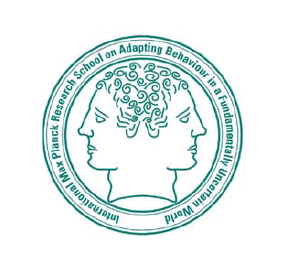

The International Max Planck Research School on Adapting Behavior in a Fundamentally Uncertain World (Uncertainty-School) combines approaches from Economics, Law and Psychology to explain human decisions under uncertainty more effectively and to better design institutional responses. The Uncertainty- School is jointly hosted by the Max Planck Institutes at Jena, Berlin and Bonn, and the Psychology and Economics Departments of the FSU Jena. International Partners are the Department of Psychology of Indiana University, Bloomington and the Center for Rationality at the Hebrew University, Jerusalem. Outstanding candidates are invited to apply for doctoral fellowships in economics, law and psychology.
Applicants are required to hold at least a Masters Degree (or Diplom in applicable countries) or a State Exam with honors in one of the above mentioned disciplines or an equivalent degree in a related discipline. Fellowships start on February 1st, 2010 and include funding for up to three years. Research will be conducted in English at either Jena, Berlin or Bonn. Besides the summer school, dedicated to providing a sound knowledge in the neighboring disciplines, doctoral fellows will benefit from the academic training and intellectual life at the participating institutions.
Deadline for applications is November 1st, 2009. Program details and the online application form are provided at http://www.imprs.econ.mpg.de/application. Applications have to be submitted online and should include a CV, transcripts, a letter of interest and two letters of recommendations.
Both, the Max Planck Society and the Friedrich Schiller University are committed to improve the opportunities for women in the sciences and particularly encourage them to apply.
The International Max Planck Research School on
Adapting Behavior in a Fundamentally Uncertain World (IMPRS Uncertainty)
Max Planck Institute of Economics
Kahlaische Strasse 10
07745 Jena
Germany
imprs@econ.mpg.de
http://www.imprs.econ.mpg.de
Filed in
Jobs ,
SJDM
 Subscribe
Subscribe to Decision Science News by Email (one email per week, easy unsubscribe)
DEPARTMENT OF OPERATIONS AND INFORMATION MANAGEMENT PROFESSORSHIP

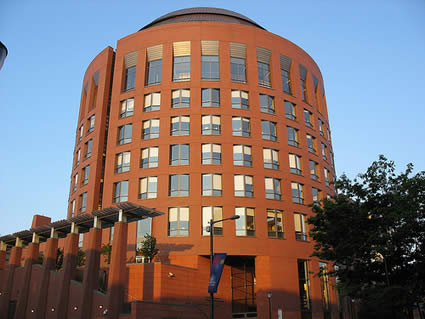
Department of Operations and Information Management
The Wharton School, University of Pennsylvania
The Operations and Information Management Department at the Wharton School is home to faculty with a diverse set of interests in decision-making, information technology, information-based strategy, operations management, and operations research. We are seeking applicants for a full-time, tenure-track faculty position. Applicants must have a Ph.D. (expected completion by June 30, 2011 is acceptable) from an accredited institution and have an outstanding research record or potential in the OPIM Department’s areas of research. Candidates with interests in multiple fields are encouraged to apply. The appointment is expected to begin July 1, 2010 and the rank is open.
More information about the Department is available at: http://opimweb.wharton.upenn.edu/
Interested individuals should complete and submit an online application via our secure website, and must include:
• A cover letter (indicating the areas for which you wish to be considered)
• Curriculum vitae
• Names of three recommenders, including email addresses [junior-level candidates]
• Sample publications and abstracts
To apply please visit our web site:
http://opim.wharton.upenn.edu/home/recruiting.html
Further materials, including (additional) papers and letters of recommendation, will be requested as needed. The department will begin reviewing applications on December 1, 2009. To ensure full consideration, materials should be received by December 1st, but applications will continue to be reviewed until appointments are made.
Contact:
Professor Eric K. Clemons
Operations and Information Management Department
The Wharton School
University of Pennsylvania
3730 Walnut Street
500 Jon M. Huntsman Hall
Philadelphia, PA 19104-6340
The University of Pennsylvania values diversity and seeks talented students, faculty and staff from diverse backgrounds. The University of Pennsylvania is an equal opportunity, affirmative action employer. Women, minority candidates, veterans and individuals with disabilities are strongly encouraged to apply.
 Subscribe to Decision Science News by Email (one email per week, easy unsubscribe)
Subscribe to Decision Science News by Email (one email per week, easy unsubscribe)














